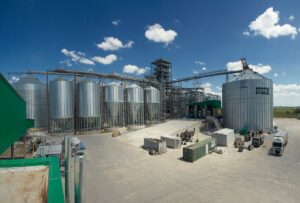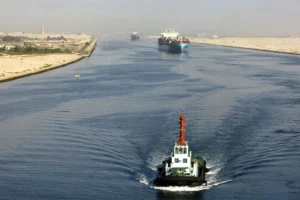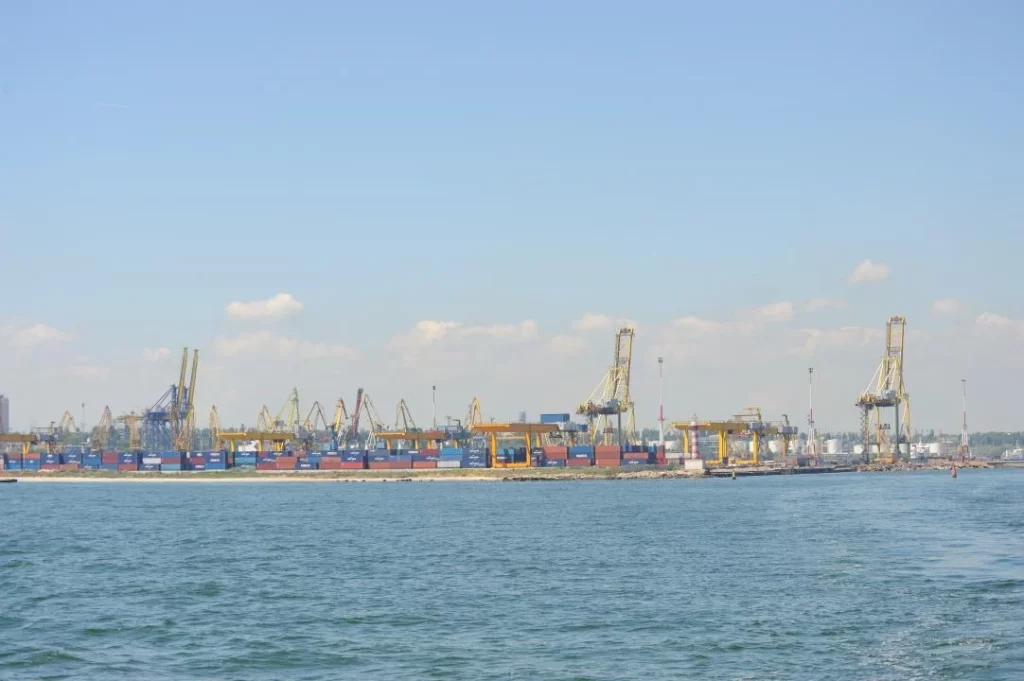EBA Logistic Talks 2025: Year in Review, Trends, and Human Capital

On November 18, in Odesa, the EBA Logistic Talks 2025 brought together leaders of the logistics industry – a closed-sector event organized by the European Business Association (EBA), the Association of International Forwarders of Ukraine (AIFU), and the international law firm Interlegal.
The event, which gathered executives from logistics companies, port representatives, transport operators, HR specialists, and top managers, provided a platform for an open dialogue on the state of the industry, expectations for the coming year, and human capital as the foundation of any business’s stability.
Logistics Updates Panel
The first panel, Logistics Updates, focused on the operational reality of 2025. Experts discussed updates in customs regulation, digital transformation, route security, and transport infrastructure development, sharing practical cases that have impacted company operations throughout the year.
Human Capital Panel
The second panel, Human Capital, was dedicated to people – the key resource of the logistics industry. Participants explored ways to address labor shortages, retain and motivate teams, and define the characteristics of modern corporate culture developing in the sector.
Customs Policy: Open Dialogue on Pain Points
The presence of representatives from Odesa Customs – Deputy Head Volodymyr Alekseev, Head of the Customs Control and Clearance Department Oleksandr Kholopov, and Head of Anti-Corruption and Risk Prevention Department Olena Ruska – sent a positive signal to the business community. It allowed participants to raise critical questions about transparency and efficiency at Odesa Customs.
Olena Ruska highlighted key achievements and objectives for 2025, emphasizing the balance between effective customs control and facilitating legitimate trade. A special focus was placed on speeding up customs procedures: the average time for import declaration clearance at Odesa Customs has steadily decreased to 1 hour and 33 minutes due to process optimization.
She also noted a 4% reduction in the number of customs value adjustment decisions compared to 2024, with a significant improvement in quality: whereas in 2024, courts overturned 75% of such decisions upon appeal, in 2025 this figure dropped to 17%.
Finally, Ms. Ruska emphasized that anti-corruption measures form the foundation of a fair, transparent, and effective customs system. The agency actively implements preventive tools, including risk analysis, monitoring staff lifestyle, polygraph testing, and the CIPS-2025 survey – which has already engaged over 500 stakeholders and business representatives.
The discussion quickly shifted to a Q&A format, where businesses raised pressing issues that slow cargo flow through Odesa. Concerns included the fact that Odesa Customs lags behind other regions in key indicators (processing time, risk management system efficiency), creating non-competitive conditions.
Participants reiterated the main issues requiring immediate management attention: inflated customs value, abusive inspections, and unjustified cargo clearance refusals. Customs representatives assured that most of these matters are already being addressed.
This dialogue is expected to be a key step toward restoring trust and developing joint mechanisms to resolve systemic issues at Odesa Customs.
Economy of Assumptions: Market Chaos and the Path to Digital Transformation
Dmytro Kazanin, Owner and Director of TEUS Terminal, emphasized that the Ukrainian economy today is an economy of assumptions, not forecasts. Logistics has entered a phase of constant turbulence and risk, where business success depends on the ability to operate in chaos and make quick decisions based on available data.
A clear example of market volatility is the wagon rental market: daily rental rates jumped from UAH 200–300 to UAH 1,500–1,600 within a month, with supply-demand balance shifting within weeks, forcing businesses to react retroactively. Additional pressures include driver shortages, attacks on railway and port infrastructure, high corn yields, and congestion at key stations.
Mr. Kazanin stressed that the only path to stability and predictability in such conditions is the implementation of forward contracts. He also highlighted the need for full integration of the supply chain “from field to end consumer” – creating a single data ecosystem, planning, and coordination for all market participants.
According to the expert, Ukrainian logistics is entering a new era – one of systematization, partnership, and digital integration. Only a unified digital network can ensure continuity of logistics processes under crisis conditions.
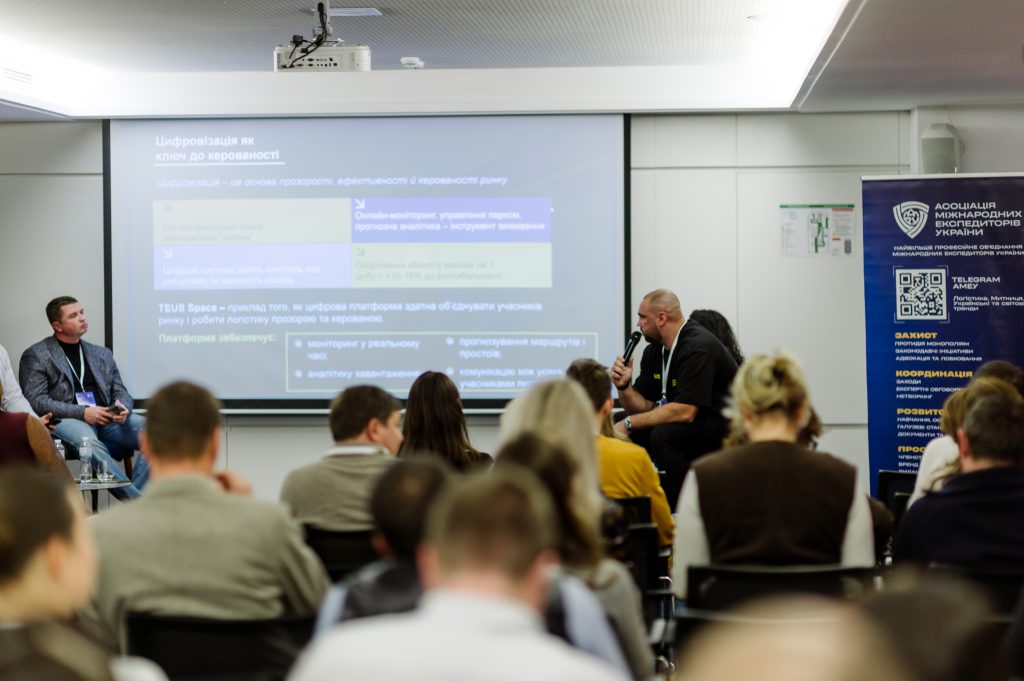
Legal Perspective on Maritime Transport Risks
Karina Horova, Partner at Interlegal and ICC Ukraine Arbitrator, presented an overview of client requests in the maritime business, reflecting market trends. In 2025, Interlegal handled 182 projects in Transport & Shipping. The most common queries included claims handling, legal advice on charter agreements, and ship arrest/release matters.
The expert noted that military actions have significantly impacted maritime operations. Key concerns for participants include port security, ship deviation, charter termination, and risk allocation in case of vessel damage due to attacks. She emphasized the critical importance of having a clear and valid insurance policy and involving legal counsel from the first hours of an incident.
The presentation also covered safe ship transactions, proper banking operations, and payment mechanisms – essential issues for shipping businesses. Interlegal provided practical advice on ship arrests in various jurisdictions, noting that jurisdiction selection often determines arrest success.
War Risk Insurance: Limited Coverage and the “Scent” of Losses
Serhii Fedchenko, Head of Logistic Insurance Online (Lion broker), shared practical experience in managing war-related claims, noting that Ukraine currently has the most experience in this area. He warned participants about limited insurance company resources: cargo must be insured before coverage limits are exhausted. Another major loss could halt war-risk insurance for Ukraine.
Mr. Fedchenko stressed the importance of coverage in ports and terminals, as these are highest-risk areas. Using real cases, he illustrated challenges in claims settlement, including situations where part of the cargo is destroyed without trace or suffers indirect damage (e.g., mold in containers due to fire-related temperature changes). He explained that cargo failing the “smell test” is often declared a total loss, even without physical damage.
His company manages claims efficiently, with compensation issued within two weeks after all documents are submitted. He urged businesses to carefully review insurance policies and announce cargo in advance to ensure coverage before unpredictable events.
Service Starts from Within
Yana Saranina, CEO of Ukramarine Logistics, shared practices for building corporate culture that helps teams withstand wartime pressure, labor shortages, and constant market changes. Her key message: logistics starts with people, not containers. In difficult conditions, the team is the company’s main asset, and investment in staff directly translates into service quality – a satisfied employee creates a satisfied client.
A happy team results from systematic work. Ukramarine consistently invests a portion of operational expenses into staff development, and management constantly assesses whether employees receive the same level of service as clients. According to Ms. Saranina, employee feedback (eNPS surveys) leads to tangible changes in culture and processes.
Developing the next generation of logisticians is seen as part of Ukramarine’s social responsibility. The company organizes open days, student internships, and collaborates with universities to contribute to the industry’s future.
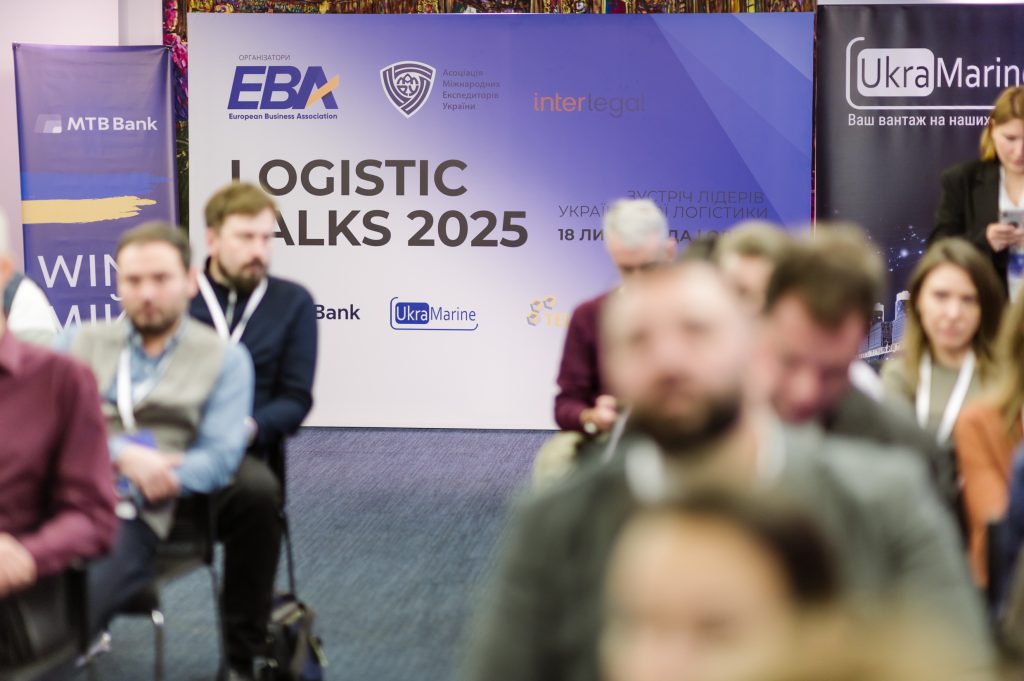
Flexible Culture for Global Scaling
Maria Chebruchan, HR-BP and Intraholding Communication Manager at Formag Forwarding, discussed corporate culture in the context of business scaling. She noted that excessive rigidity in culture is a primary obstacle in international expansion, affecting around 70% of companies.
Ignoring local specifics, imposing a uniform style, and lacking cultural adaptation when expanding abroad leads employees to expend energy on fitting in, feel unheard, and eventually leave due to misalignment. Corporate culture becomes an invisible barrier to market entry and consolidation.
Ms. Chebruchan proposed a flexible corporate culture: a rigid core (company mission, work principles, ethical and quality standards) combined with a flexible shell (communication style, motivation systems, interaction formats, work processes). The core maintains brand integrity regardless of geography, while the shell adapts to local context and increases team efficiency.
She emphasized that flexible culture is not a compromise on values, but a “strategic capability to grow while preserving identity.” Such flexibility enables companies to scale three times faster, improve employee loyalty across regions, and achieve higher ROI.
Labor Market: Critical Workforce Shortage and Solutions
Nadiia Savchenko, CEO of HR Agency People, highlighted that the Ukrainian labor market faces a critical logistics workforce shortage, and the industry is entering a phase where employees choose employers. This requires transforming hiring approaches, adapting workflows, investing in leadership, and systematically expanding workforce capacity.
She stressed that logistics faces a perception problem: jobs like warehouse operators or truck drivers are not seen as prestigious and lack proper PR. Social recognition is crucial for the new generation. Modern candidates seek not only high salaries but also values-driven companies, meaningful work, flexible processes (remote or adapted schedules), and development opportunities.
To attract talent, logistics companies must invest in a strong HR brand, promote and elevate the prestige of logistics professions, and train managers to work effectively with younger employees (“people leave managers, not companies”).
Other strategic measures include expanding workforce potential and embracing diversity: engaging employees over 50, integrating veterans, and being open to foreign workers. Internal training and upskilling of existing staff can also help mitigate skill shortages.
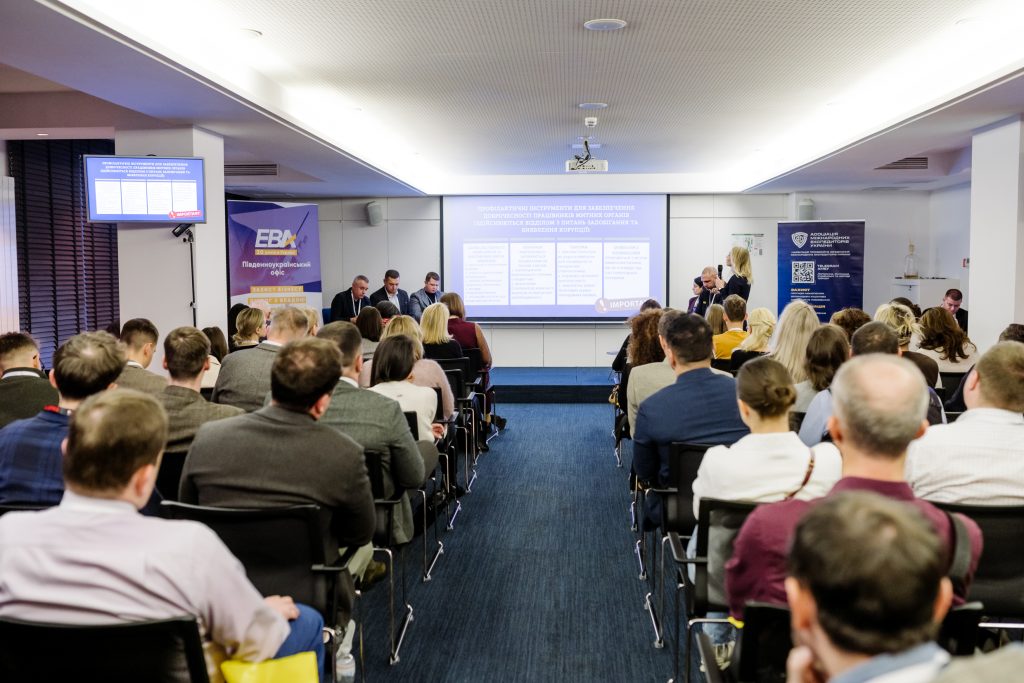
Bridging the Educational Gap – New ONMU/AIFU Project
Iryna Savelieva, Vice-Rector for Research at Odesa National Maritime University (ONMU), outlined a key educational issue exacerbating the shortage of qualified logistics professionals. Globally, the World Bank projects a shortage of over 15 million logistics specialists by 2030.
The core problem is the mismatch between university curricula and actual industry needs. To bridge this gap, ONMU and AIFU launched an educational project to fully update the “Transport Organization” program and integrate practical experience.
The initiative engages all links of the logistics chain – from ministries and ports to forwarders and traders. Businesses are invited to co-develop the curriculum, provide checklists of required competencies, share practical materials, and participate in lectures, workshops, and site visits to ports, terminals, and customs offices for students and faculty.
The project has already gained broad support from industry leaders, including TEUS, Ukramarine, Kernel, MSC, DP World, Global Ocean Link, HHLA Container Terminal, as well as state institutions and associations such as the State Customs Service of Ukraine, the Ministry for Development of Economy, and AMPU.
Conclusion
EBA Logistic Talks 2025 was more than a formal discussion; it was a real dialogue aimed at solving pressing business challenges. The discussion highlighted that the logistics industry enters the new year facing major challenges, but also with a strong demand for change – not only in processes but also in culture, values, and philosophy.
Business, government, experts, and educational institutions are ready to collaborate on streamlining logistics, digital integration, team development, and addressing workforce shortages. The main insight and forecast for the future is simple: in turbulent conditions, logistics will endure and grow where operational flexibility, cooperation, and investment in people are prioritized. Such dialogues form the foundation for a strong and competitive market.

